Recovery tools, part 6
CFS Recovery - the program that got me to the proverbial finish line. Plus, the Antidote #45: managing anxiety, FIGHTING BACK, and goodfuckingbye summer.
The Tonic is a lighthearted, heavily resourced newsletter for folks interested in learning about long COVID, ME/CFS, and other health conditions. Come for the info; stay for the whimsy. Or vice versa.
If you are new here and curious about the tools that have been helping me in my long COVID recovery, please check out the Recovery Tools series tab on my Substack site. (Please start with part one, as it includes an important disclaimer about how highly individualized recovery tools can be with a heterogenous illness like long COVID).
The Tonic will always be free to read - Amy is so happy you’re here! However, if you are valuing the experience and are able, please consider a show of support by upgrading to a paid subscription. If that’s too much to bite off at the moment, you can also make a one-time contribution through Buy Me a Coffee. Any help is appreciated! Anyone who does gets a 📢 in an upcoming post. Thank you!
Here I am
I am almost afraid to say this, but this could very well be the last part in my Recovery Tools series (well, the last part that details what got me here; I may still include posts in this tab that have to do with keeping recovery going).
The series
So here we are at part six, which focuses on the online program that took me from 75% to near done. If you’ve been reading my posts for the last several months, I’ve mentioned the program CFS Recovery several times. More on all of that shortly.
For those who are new here or who may have missed them, I will link to parts 1-5 of the recovery series below. Additionally, I created a tab at the top of my Substack page (accessible via website only, not through the app) for all of these Recovery tools posts, so you can put your hands on them easily in the future.
Part one (particularly the intro) is important to read because it lays out all of the disclaimers and qualifiers that any person with Long COVID or ME/CFS should present before claiming to have anything resembling answers to these complex chronic illnesses. In fact, I do not claim to have the answers. I only share what has been helpful and why I think this has been the case for me so you can decide if it might make a difference for you too. Much of this is the result of me reading, watching, or listening to other people’s recovery journeys and culling tools from them, so I am merely paying this forward. To quote perhaps the most important part of the intro to part one:
If you’ve met one long hauler, you’ve met one long hauler.
Try what might speak to you, leave the rest. Maybe circle back. It’s your recovery journey and you have to do what feels right.
Also important to say
There was no one magic fix, at least not for me. Each of the things listed in all six parts of this series has contributed to my slow, steady, and overall recovery. Just because CFS Recovery is what helped me with the last 25% doesn’t mean that the Gupta Program (which I also tried and which you can read about that in part one) didn’t “work” for me. The knowledge I gained through Gupta was a strong foundation; it helped me cultivate the understanding of what was going on with my brain and body and it cracked open a bit wider the door of belief that I could get better (which is crucial to success here, in my opinion).
Many of the tools in all six parts are things I still use today and plan to keep using, because I now understand my own tendencies and traits, and what it takes specifically for me to keep my nervous system regulated so I can put my body in the best position to reach homeostasis. Of course, stress and illness are always possible, but I have found particularly this summer that I am better equipped to deal with both as a result of the knowledge I’ve gained and the deep work I’ve done.
Also, I believe in CFS Recovery so much, that I do acknowledge that had I found it sooner, I may not have needed some of these other tools. But I cannot live with any regrets about the path I’ve taken, because everything taught me something. There are, however, people enrolled in the program who have been sick a year or less, and they are having terrific results also.
If this is not for you
That’s okay. It’s your decision, or set of decisions, to make. None of these approaches are blaming you for your own illness, as much as naysayers want to think that. The illnesses and the symptoms are quite real. The people who have written these books, suggested these approaches, or started these programs have all come through an illness like this. Some were so severe, they were hospitalized for months. They are the first to acknowledge how real these conditions are from firsthand experience.
So please - before you are tempted to say things like, “well if they were able to recover on their own, they must not have been that sick to begin with” - lawd child, check yourself. No one would ever cast doubt on how sick you are or have been, because we’ve been there. So please don’t do to others what you wouldn’t want done to you. I have a deep catalog of posts here on what this illness has been like for me, but you can start with Long COVID in Pictures if you want photographic evidence. Also, here’s a blog post I wrote for Health Rising on the hell I went through to obtain disability benefits. You cannot fake or exaggerate this shit. The insurers are on to anyone who does.
To my mind, these approaches became something I slowly opened my mind and heart to simply because I became exhausted by the endless rat maze of doctors’ appointments, tests, specialists, and so-called specialists (like every single doctor at the long COVID clinic). Medicine didn’t and doesn’t have the answers to this, and I spent a shit ton of money and even more psychic energy to have the needle moved not at all. Not even a little. Do I believe science will figure this out? Yes, someday. But not anytime soon.
The way I saw it, I had nothing to lose by believing the hundreds of people whose recovery videos I watched on YouTube. If they could do it, why couldn’t I? And if it’s all some weird form of placebo effect - who cares? As long as it works. Or could work. All I needed was a sliver of possibility.
CFS Recovery
I can’t remember how I first learned about CFS Recovery - probably through one of the videos on Raelan Agle’s YouTube channel - but sometime in 2024, I signed up for an online informational event to learn more about the program. The event was led by the founder Miguel Bautista, who himself had suffered from severe ME/CFS and had fully recovered. Here is his recovery story on Raelan’s channel:
At the time of the informational event, I had already done the Gupta program as well as Alex Howard’s RESET program, and I had watched many hours of recovery videos with a lot of different strategies. I was intrigued by Miguel’s approach, which seemed to offer more hands-on coaching than the other programs did at the time, but the program was several hundred dollars a month, and at that time, this seemed out of reach for me. I also felt like I could make progress on my own just using the tools I already had and watching a lot of free content on YouTube.
Miguel, Raelan, and people like Dan Buglio offer tons and tons of free videos (Dan in particular puts out a free video every single day) with virtually everything you’d need to know about their (overlapping) approaches. This is one thing to keep in mind when the temptation comes to think of these folks as snake oil salespeople. They genuinely do want people to get better. They also have to make a living, and I don’t begrudge them that. We don’t get mad at doctors and therapists for charging for their help, so why get mad at coaches and program creators?
So I tried on my own - I watched a ton of content, took little tricks where I could, had a few mindset shifts, and kept working on my nervous system through things like meditation, socializing, walks in nature, getting good sleep, eating regularly and well, hydrating, a bit of journaling, this Substack, etc. And within a year (by late 2024/early 2025), that all got me to about 75%.
I felt really good about that most days. I slowly started getting bits of my life back (the parts that were good for me, lol). But, I was also a little impatient. Getting to 75% by getting 1-3% better each month felt glacial, but I was grateful for where I was and I kept at it.
Then one day, I watched this recovery video on Raelan’s channel:
Jon had recovered from severe long COVID using CFS Recovery and he had since become a coach for the program. Something about his story and his way of explaining things just clicked for me, and I thought, “it’s time to jumpstart this.” Soon after I had a free discovery call with Coach Adrianne (here is her Raelan Agle interview; all of the coaches in the program have had ME/CFS or long COVID and recovered through the program). She was so warm, so encouraging, and related to so much of where I was in my journey. She also, refreshingly, didn’t pressure me in any way. In fact, she told me she thought it would only take a few months of the program for me to fully recover (turns out she was right!).
What appealed to me most was the coaching aspect, which is something that sets this program apart from others. I needed a written plan where I could be accountable to myself, and I needed a place to get questions answered on an ongoing basis.
I joined the CFS Recovery Academy, which would run me $297/month. There’s a seven-day free trial, during which time you can watch all of the video content, and the membership is month-to-month, so you can leave at any time. There is also a Platinum program that costs more but gives you full time access to coaches, and there’s a much lower cost option (I believe $47/mo.) that I believe gives you access to the videos and the community, though no access to the coaches.
The way I saw it was that at $297/month for maybe 4-6 months, I’d still be spending far less than I spent on the years of trying various medical interventions that didn’t work. I viewed it as an investment in my health.
Here’s what I got out of the program for that $:
A nervous system assessment that showed me where I was in recovery and what areas I needed to focus on next.
Video modules explaining the science behind nervous system dysfunction, what is happening during ‘adjustment periods’ (a.k.a., crashes), and how to respond well to symptoms (the basic tenet of the entire program). The videos in this program were shorter and easier to follow than Gupta.
Several group coaching calls each week, offered at various times to accommodate folks in all time zones (this is a very international community), where we share our wins with one another and get a chance to ask the coaches our recovery questions.
1:1 coaching calls (you get one at the start and one at 90 days, though you can pay for an additional one in between), where you get to talk to a coach specifically about your symptoms and approach to recovery, get your questions answered, and discuss a plan for moving forward that they then put in writing and send you.
Access to a community of folks also in the program through an app called Skool (with a social media-like ‘feed’) which provided a place to get support from others who know what this experience is like, to feel less alone, to get questions answered, to have people lend you their hope, and for you to lend your hope to others.
I have discussed the basic tenets of the program here in previous posts, but the main one is recovery is all about how well you respond to symptoms. Recognizing that you have the symptoms but developing a neutral mindset toward them where you aren’t analyzing why they happen or panicking over them is key. The idea is to lower the level of fear so you can begin to get yourself out of fight-or-flight, and once you are more consistently in this calmer state, your body will naturally start to heal and your energy will expand.
Another big piece is what Miguel calls ‘adjustment periods’ or ‘AP’s’, which is basically a reframe of ‘crashes’ or ‘flares’ from overactivity or overstimulation. Often you’ll hear folks on the group calls saying they are in a ‘spicy AP’ (a rather intense symptom flare). Miguel posits that we need these AP’s in order to find the outer edges of what we’re capable of, and then learn how far we can ‘nudge’ against those edges in order to make progress.
If you’re familiar with the concept of pacing, it’s a bit like learning what your ‘energy envelope’ is, except that in traditional pacing, we’re always advised to stay within that envelope for a while before nudging up our activity or stimulation. Miguel’s and the coaches’ approach is really individualized to where folks land in the nervous system assessment that the program does - generally, the higher functioning you are, the more they like you to nudge.
I would say this is where I saw the biggest mindset shifts for myself early on in the program: the coaches gave me ‘permission’ to nudge more than I was. In other words, I had more capacity than I knew, but was being held back by fear of symptom flares and permanently making myself worse.
On my first 1:1 coaching call, when I shared with Coach Junior about my fears in particular of returning to work and eventually leaving disability benefits behind, he asked me one simple question that I needed to sit and think about:
what might be true if fear wasn’t the whole story?
That one made me really think. In response, I wrote in my recovery journal: “I’ve slowly been absorbing the idea of betting on me. Betting on my recovery, on my ability to work robustly again someday…the key difference is that I’ll do this from a place of alignment and intention, and not from fear of scarcity or desperation.”
WOW. That was a huge shift for me.
In this same journal, I wrote so many ‘golden nuggets’ that came out of the coaches’ mouths on the group calls:
this is a fear journey.
symptoms after nudging activity/living life is GROWTH.
recovery intentions that are from a place of desperation will trigger your nervous system to go into or stay in fight-or-flight.
stay in your ‘three-foot world’ (like a mountain climber who only focuses on the next step or two instead or worrying about what’s way up the mountain) and ‘live in the grey’ - get away from thinking in extremes or ‘all or nothing’ thinking.
when you nudge a lot, the brain sometimes causes greater fatigue because it’s processing the fear that comes with the nudge. It’s part of a progress cycle - a chance to ‘level up.’
the brain brings on fear and panic FAST because it wants to protect you quickly. It won’t ease its way into warning you.
“is this true, or is it just a thought?”
The backbone of the program, in my opinion, are the coaches themselves. Every single one of them is so wise, so nurturing, so supportive. I found myself signing up for different calls and choosing different coaches for my 1:1 calls so I could experience the range of them. They are really gentle with the program participants and really encouraging of nudges when they have to be. I have tremendous respect for each of them. Miguel does a fantastic job choosing and supporting them, and they seem to work very well behind the scenes as a team with a shared vision, always coming up with new ideas and ways to offer help and support.
I’d be remiss if I didn’t mention the other program participants. It is such a caring and supportive environment, whether it’s comments folks write in the Skool community or in the group call chats or folks reaching out through DM to check in on you. It’s not toxic positivity, either (which I’m sensitive to) - people share their struggles too, though we are encouraged by Miguel to find a win and a solution to ‘bookend’ the struggle or question in our posts, which keeps us in a good frame of mind.
Bringing this in for a landing
I had mentioned a few posts ago that I realized as I was out there having my summer that I was really ‘okay.’ I was able to travel, tolerate heat exposure, enjoy socializing and a cocktail or two, work a bit more, without having any AP’s. As a result, I am now in the Beyond Recovery part of CFS Recovery, which is a bit cheaper at $197/month and the group calls are more about what it is like to be out there living life again. These calls are smaller (maybe 4-6 people, as opposed to the Fundamentals and Integrations calls, which can have over 50 people on them). More intimate. We are having fuller discussions there, and I’m enjoying that. I think I will probably stay in this part of the program for a few months as I transition further into working again. I am really grateful that this part of the program exists, so we don’t have to get all of this support and then just ‘drop off’ into the world. It’s a lovely transition, and good ‘modeling’ for our newly regulated nervous systems.
That’s about all I have to say about this most excellent program. I am very grateful that someone like Miguel exists and decided to use his own experiences recovering to help others.
Here is a recent instructional video that Miguel put out on YouTube, if you want to get a sense of the concepts:
If I can answer any questions, drop me a comment or a DM here on Substack.
COVID, Long COVID, and ME/CFS
💨 Air quality advocate: Violet Affleck (daughter of Ben Affleck and Jennifer Garner) speaks at the U.N. this week on the devastating effects of long COVID on adults and children and why better air quality should be considered a human right.
😣 COVID headache: what is it?
🩸 Long COVID periods: women with long COVID may have heavier menstrual bleeding (free MedPage Today account required).
💊 Paxlovid and long COVID: treating acute COVID-19 with nirmatrelvir-ritonavir (Paxlovid) was associated with a slightly lower risk of long COVID in some adults but not in younger people, claims data showed.
🩻 Vagus nerve stimulation: the promise of it, and the no-brainer long COVID trial underway.
🫣 Hidden disabilities: living well with them, a blog post by Stacy Taylor, LCSW.
💉 COVID vaccine tourism: a new era.
💰 Vaccine benefits: the economic value ($38 trillion!) of the COVID vaccines in the first year alone.
🫀 Cardiovascular disease and COVID-19: a clinical consensus statement on prevention and treatment.
Resources
❤️🩹 Long COVID podcast: When COVID Rewrites Your Love Story, an episode of the Embodied podcast on NPR.
🫂 Support group: Long COVID Justice is starting a new support group, The Complexities of Living with HIV, on October 2nd. More information and register here. Particularly helpful for anyone experiencing new or worsening health issues after a COVID infection, leading to Long COVID or conditions like ME/CFS, POTS, or dysautonomia.
🗣️ HIV panel discussion: Long COVID Justice again with a conversation called HIV complexities: a community conversation, on October 16th from 6:30-8pm ET. Register here.
😟 Managing anxiety: when the world is falling apart, a conversation with
and Dr. Jessi Gold.🎭 Anxiety documentary and comedy special: Kill the Butterflies, by comedian
. Worth your time, and funny too! (Also, Steve looks just like my older ginger brother, so I have a warm spot in my heart for him).Health miscellany
🪲 Ticks: they’re migrating, raising disease risks if they can’t be tracked quickly enough.
🚶🏻♂️ ‘Japanese walking’: here’s what it is, and how it can boost work-life balance.
☠️ Genocide: Israel destroys Gaza health center after evacuation. Someday the world will reckon with what’s being allowed to happen here.
🥚 PCOS: Polycystic ovarian syndrome is deemed a "women's condition," but read this fascinating piece about how men and children can also be impacted.
🔥 Wildfire smoke: scientists predict it will be the most costly climate-related health hazard.
🤬 Government fuckery: no shortage this week. If you like your fuckery with an unhealthy dose of spin, check this out: EPA Releases Proposal to End the Burdensome, Costly Greenhouse Gas Reporting Program. And because we know they’re hardened criminals (eye roll), childcare workers in D.C. go underground amid ICE crackdown. And, if you enjoy hypocrisy, this should help with all those school shootings that conservatives say are really about mental health and not guns: RFK Jr. panned mental health screenings in schools. And hunger? Who cares? As long as those at the top have enough to eat: USDA cancels survey tracking how many Americans struggle to get enough food. And what’s that fuck Hegseth up to these days? Oh, you know…tormenting honorable members of our military: San Diego Navy doctor removed from role over social media profile. And the attack on trans folks continues: The Heritage Foundation wants transgender people and allies designated as terrorists. (The Heritage Foundation is the right wing “think” tank behind Project 2025 and has outsized influence on U.S. policy, so I’ve included it here under G-fuckery).
💪🏽 Fighting back: I’ve decided to start countering the fuckery category with a more hopeful one, and it’ll be here to stay, as long as government health-related fuckery continues. First, if you haven’t seen it: What Jimmy Kimmel said on his first night back. Then Trump administration cannot proceed with overhaul of US health agencies, court rules. States are also fighting back: PA joins Northeastern states' regional public health coalition. And here are insurance companies doing the right thing for once: Health insurers' associations says member plans will still cover vaccines. Hope this gets traction: Michigan Democrat moves to impeach HHS Secretary Robert F. Kennedy Jr. And I am not sure this one will pass, but I remain hopeful: Bipartisan bill seeks to reinstate national suicide hotline for LGBTQ+ youth. And in trans news: Trans health care “skeptics” lost a key ally—now they’re having a meltdown. And I thought this was a neat idea: UCLA researchers host science fair to showcase work suspended by the Trump administration.
🧴 Magnesium lotion: it’s popular for sleep, but does it work?
😞 Suicide rates: from this new analysis of CDC data - “suicide rates among Black people in the U.S. rose 25% from 2018 to 2023, while rates among Hispanic people rose 10%. Suicide rates among white people decreased 3% in that same time. Suicide rates were continuously highest among American Indian or Alaska Native people — but those rates did decline 15% between 2021 and 2023.”
🩸 Genitourinary syndrome of menopause: why it’s often missed.
☕ Decaf coffee: benefits, nutrition, and facts. I’ve been a decaf aficionado for decades. Caffeine just doesn’t make me feel good in any way. For those who think it doesn’t taste as good as caffeinated, you just haven’t tried the right decaf. A nice Swiss water processed (so, no chemicals), dark roast decaf is *chef’s kiss*. Here’s the one I’m drinking these days.
🍬 Artificial sweeteners: new study links six sweeteners to cognitive decline.
Inspiration & Recovery
🧠 When brain retraining isn’t the whole answer: a helpful video by
. Some with long COVID or ME/CFS, like me, get some improvement with these programs, but it doesn’t take us all the way. Harry’s got thoughts on why, what worked for him, and what he is now offering.🌴 Crowd out the symptoms: by expanding your life (a short by Dan Buglio of Pain Free You). This was absolutely part of my recovery. Fear of worsening symptoms was holding me back from experiencing life. I gently began nudging through that so I could replace fear and worry with moments of joy.
♿ Disabled people: reimagining expectations about them, an excellent piece by
who writes the Rolling With It newsletter here on Substack.🥲 An act of kindness: when he had no one in the ER, his uber driver stayed.
🦷 Science is incredible: man, 34, has tooth implanted in eye to restore his vision. Don’t skip this link!
🌟 No limits! A daily planner: on a whim, I ordered this on sale in January, after having not used a written planner for years and years. Now I love it and don’t want to be without it. I use it in conjunction with the calendar app on my phone, but it’s also a great place to outline things like aspirational goals, books I want to read, adventures I want to have, small daily tasks I need to complete, and space to make rough outlines of my Substack posts. The company almost went under this year, but luckily a buyer came along who saw the value in this planner. Check it out!
🥵 Good fucking riddance, summer: the most overrated season there is. I quite enjoyed this article.
🤦🏼♀️ Another installment of White people fucking with Black people: 'The Bear' Writer Detained After Train Passenger Complained About How He Was Sitting. Look, I’m no fan of feets-on-the-seats, but FFS, I’m not calling the cops over it.
💒 Wedding crasher mystery: SOLVED, after four years!
🐻 Fat Bear Week! Vote for the fattest bear of the year at Katmai National Park in Alaska. While you’re at it, bookmark the livestream of these bears like I did and make it the first link you click on when you hop on the interwebs. So interesting and calming!
🤦🏻 Buffoon of the week: it’s Dr. Suhail Anjum, an anesthesiologist in the UK who left an operating room in the middle of surgery to go have sex with a nurse. A medical disciplinary tribunal decided he could keep his license. Women, get your best eye roll ready: he was only out of the operating room for eight minutes (so it’s almost certain the nurse didn’t get off, haha). Also, keep your eye roll going, because the MARRIED FATHER OF THREE had this to say: “I let down my colleagues who gave me a lot of respect.”
🏆 Winner of the week: it’s Connor Belanger, a Canadian teen who rescued a stranded baby beaver while on a tubing trip with his mom. They then drove the little guy an hour and a half away to a wildlife sanctuary. ‘Little Timbre’ is thriving and will eventually be released where he was rescued. Nice work, Connor!
🐈⬛ 💩 And finally, it’s this week’s Cat Dump. Science edition: using baby talk will grab your cat’s attention, but this effect appears to be limited to the cat’s owner. So don’t talk gibberish to my wittle babies, you sound pathetic.



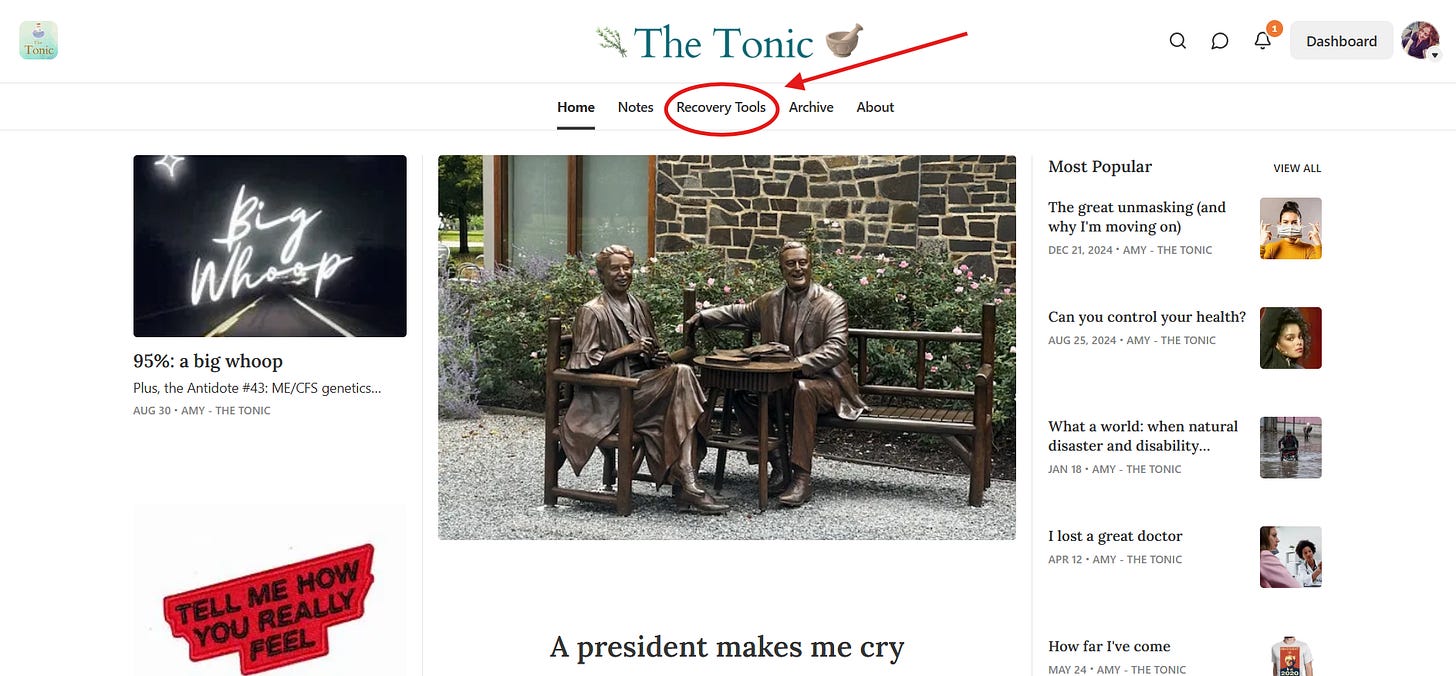




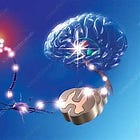

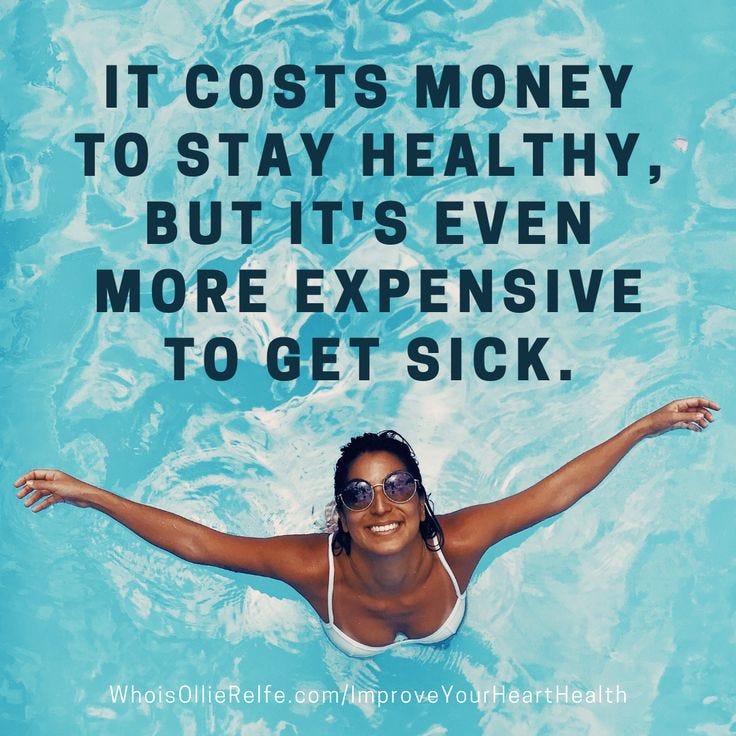
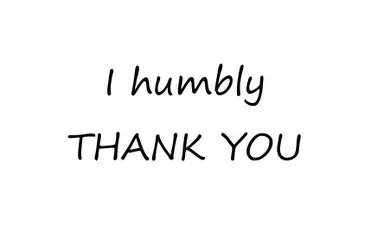



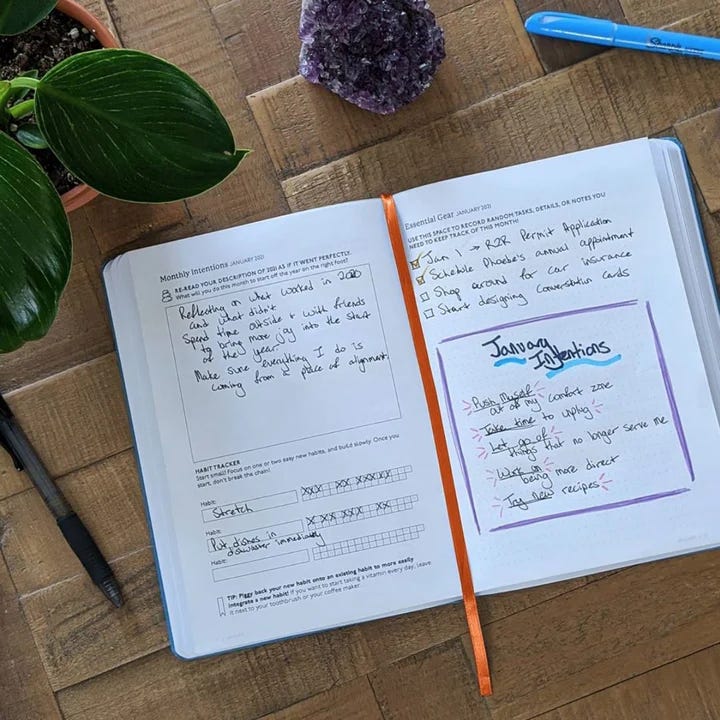

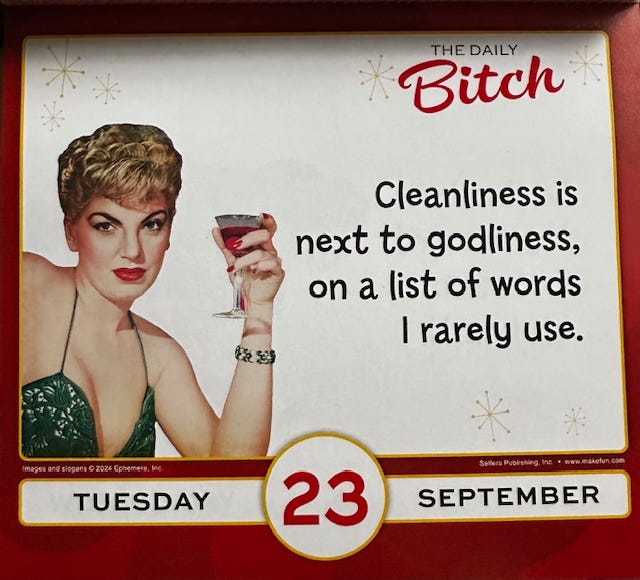
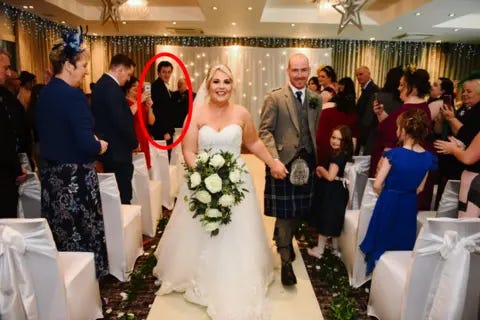

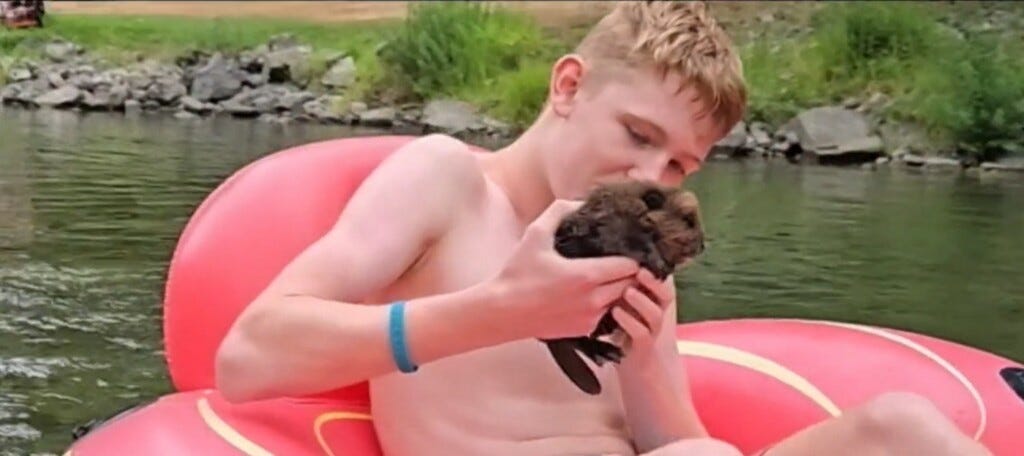
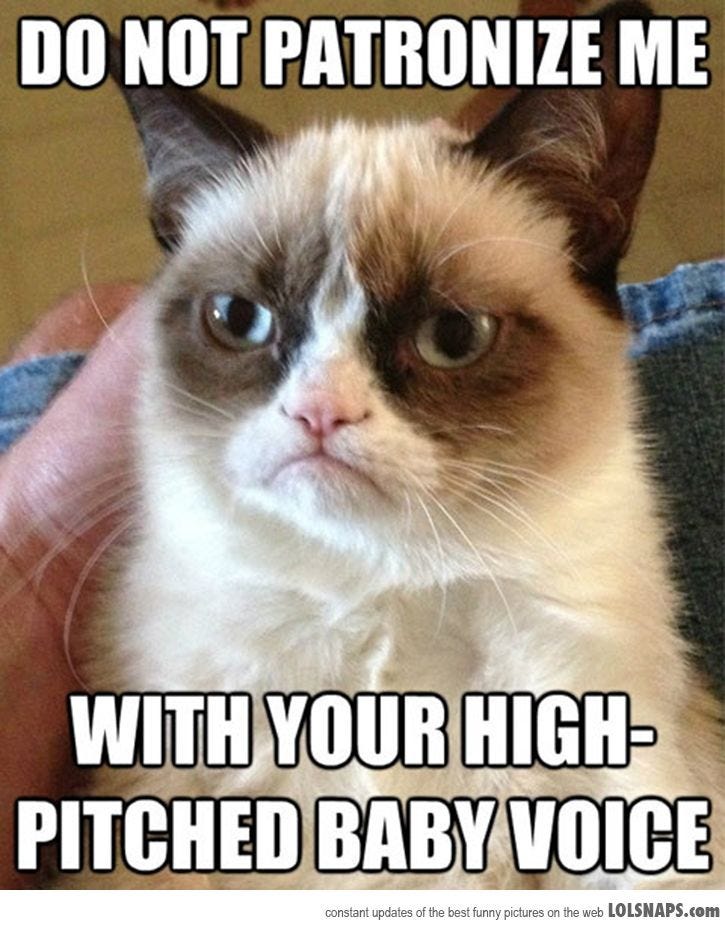

I'm so thrilled it worked for someone—now multiple someones–I know!
I was a devotee to brain retraining back in the dinosaur era of John Sarno, when my symptoms were much more spinal. I John Sarno'd my way across mountains and workfests in agony, leading to my eventual disability after an ill-advised evening backcountry ski and a sneeze.
I then jumped into Explain Pain tenets and led a Facebook group of Dim and Simmers, devoted (loosely!) to the practices of nervous system calming, meditation, mindfulness, acceptance, and transformation. Dental surgeries ensued as my neck crumbled and my teeth broke.
Next up was ANS Rewire, which I took 6 months off of work to attempt. I loved it and believed wholeheartedly, but I lost my ability to eat all but 12 ingredients. Zero pain or health improvements.
Throughout, I did six years of once or twice weekly Somatic Experiencing therapy. Capped off earlier this year with six months in a program that tracks down anyone who talks about it but rhymes with I'm All Rust.
All of these things were great for my life, but my symptoms worsened and worsened. Now, I'm more stressed than I ever have been since the great neck snap of 2016...but perversely am feeling objectively (if not remotely fully) better. Is it really just Zyzal?
I do think the retraining makes sense, even if it doesn't pencil out for me. I also wonder if my neck degeneration is simply too great to get over its own hump. Or what? Or did I do it "wrong?" despite trying for 15 years?
I just don't know. I'm always happy to see it work for anyone, and I wonder what the differences are that it doesn't do anything for me, or what I could shift to make it "work". (However, incorporating the practices, especially the meditation, does build something positive into my life.)
Excellent writing. And I do believe this program works. I happen to believe that each of us have the right to try what works for us. Because each of us are different, we must be willing to understand that everything won’t work for us but there’s a sweet spot. I’m happy you found it because you’ve always had the capacity inside of you.
It can be difficult to share with others because many of us don’t believe in our superhero power: we believe in it others more than ourselves. But you broke this down to the gritty ground. And I love you for it. I believe more people will find relief in what you shared.